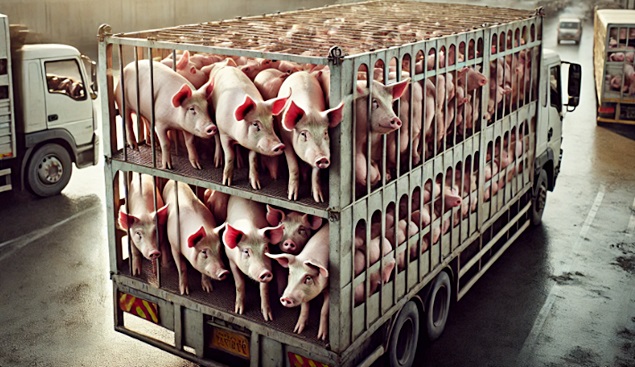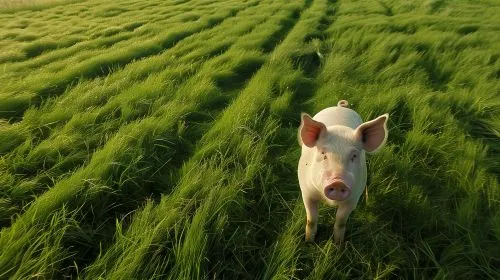1359

The European Union's Efforts to Improve Animal Welfare During Transport Face Challenges
In recent years, the European Union (EU) has intensified efforts to improve animal welfare during transport, recognizing the need to update legislation that has been in place for over two decades, according to Euractiv.
However, the reform process has encountered significant divergences between member states and European institutions, leading to delays and a lack of consensus on the new regulations.
European Commission Initiatives
As part of the "Farm to Fork" strategy—an integral component of the European Green Deal for sustainable agriculture and food production—the European Commission proposed in December 2023 the most extensive reform in 20 years of the EU's animal transport welfare regulations.
This proposal aims to enhance conditions for the 1.6 billion animals transported annually within and outside the EU, aligning legislation with the latest scientific evidence and technological advancements.
Key proposed measures include reducing travel durations, implementing mandatory rest, feeding, and watering periods for animals transported over long distances, and introducing special regulations for animals destined for slaughter and vulnerable groups, such as unweaned calves and pregnant animals.
Additionally, the proposal calls for increasing the minimum space required for different species and enforcing strict conditions for transport under extreme temperatures.
Reactions and Opposition from Member States
Despite these efforts, the Commission’s proposals have met resistance from several member states. In January 2025, countries including Romania, France, Greece, Ireland, Latvia, Lithuania, Portugal, and Spain submitted a joint document emphasizing the importance of live animal transport for the agri-food sector and opposing a total ban on the practice.
These nations argue that live animal transport is essential for the normal functioning of livestock production sectors and that banning it could have unintended negative consequences for animal welfare.
Furthermore, they stress the need for high standards and rigorous oversight during transport but insist that the primary goal of revising the legislation should be to facilitate intra-community trade and export of live animals at high welfare standards rather than banning or restricting certain types of transport.
The European Parliament’s Position
The European Parliament has taken a more stringent stance on tightening live animal transport regulations. In a resolution adopted in 2025, Members of the European Parliament (MEPs) advocated for a transition toward a more efficient and ethical system, favoring the transport of semen or embryos instead of breeding animals and carcasses or meat instead of animals transported for slaughter.
The Parliament urged the European Commission to present, by 2023 at the latest, an action plan to support this transition, including a proposal for a dedicated fund to minimize the socioeconomic impact of the necessary changes.
MEP Daniel Buda, the rapporteur for these initiatives, underscored the need for stricter regulations while also highlighting the importance of continuing live animal exports within and outside the EU, as many farmers depend on these sales.
He also emphasized the necessity of developing slaughterhouse networks in member states to facilitate the shift to carcass transport, pointing out that even countries like Germany lack a well-established infrastructure in this regard.
Divergences and Lack of Consensus
Disagreements between member states and European institutions have made it challenging to reach a consensus on new animal transport regulations. While some member states insist on maintaining live animal transport, others, such as Germany, have called for a total ban on live animal transport to non-EU countries, citing animal welfare concerns and recent highly publicized incidents of animals stranded at sea.
These differing views have caused delays in adopting new regulations and made it difficult to reach a compromise that satisfies both the needs of the agri-food sector and concerns about animal welfare.
The Future of EU Animal Transport Legislation
Efforts to reform EU legislation on animal transport face significant challenges, primarily due to divergent opinions between member states and European institutions.





